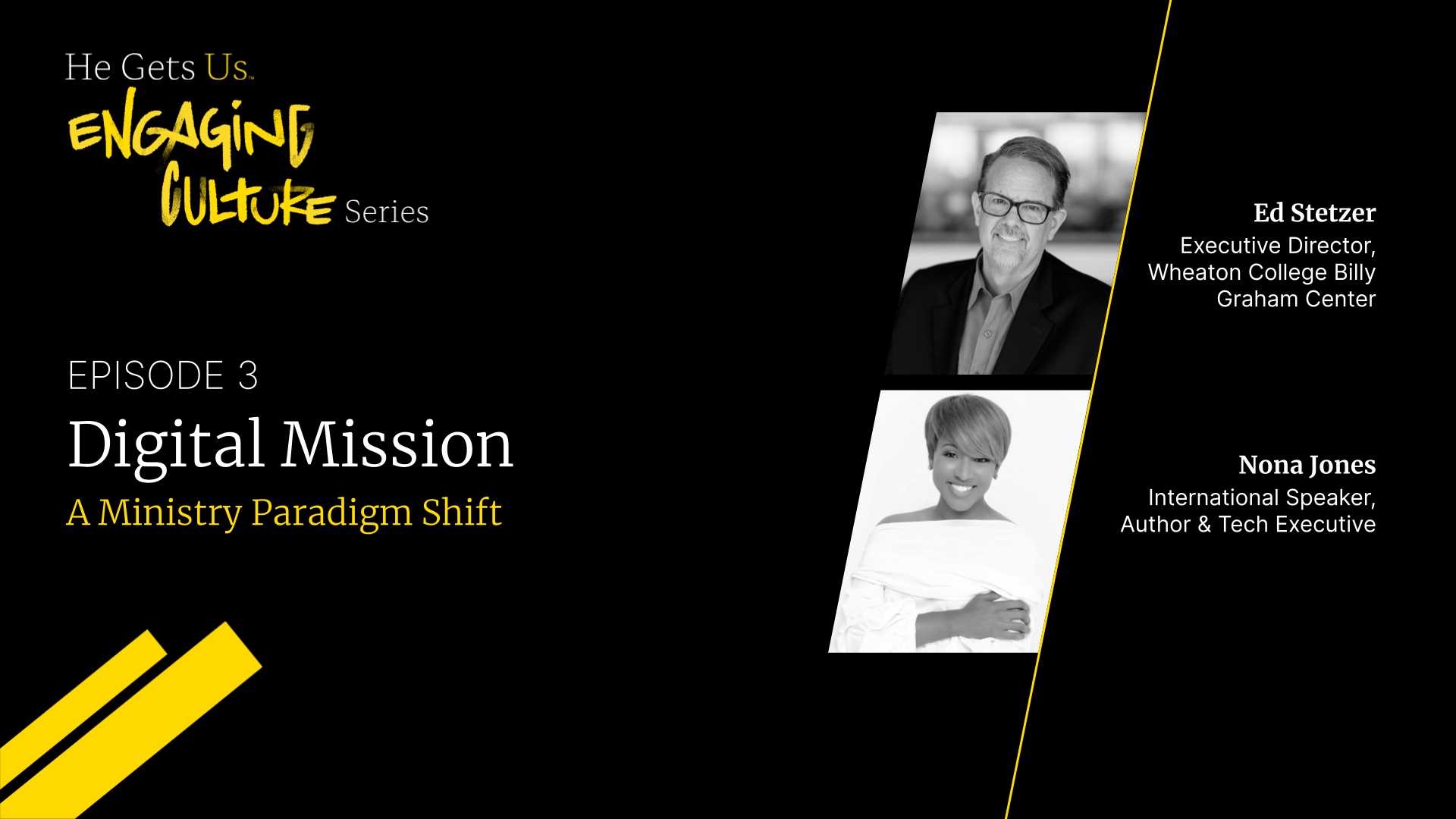When it comes to Christian participation in online discussions, Nona Jones sees a problem. Too many believers, she says, have “secured our identity to being right instead of doing what’s right.”
Jones, author, speaker, and tech expert, and Ed Stetzer, executive director of the Wheaton College Billy Graham Center, discussed everything related to digital mission on the third episode of the He Gets Us Engaging Culture Series. Their conversation covered social media usage over the past 13 years, the dark side of online spaces, and effective practices of digital missionaries.
What might it mean for our online engagement, they considered, if we prioritized doing right over being right?
Start with the Heart
When it comes to the ways we post on social media, Jones and Stetzer observe that we tend to share the “highlight reels” of our lives. While there’s plenty of complaining to be found online, the ways we tend to present ourselves personally tend toward the glossy versions of ourselves—bright smiles, good days, and successful outcomes.
Of course, not every day is a good day. Not every moment brings a smile to our faces and not every task we undertake turns out how we hoped it would. We know this about our personal lives, Jones points out, but we can easily be made to feel like that may not be the case about others when everything we see from them online portrays their lives in a perfect light. The result, of course, can be comparison that leads to discouragement and even shame.
So what’s the answer? To start, Jones says, we need to get our categories straight.
“While social media does tend to get blamed for causing insecurity, the truth is that social media exposes our insecurity. But it’s not the source. And I know that because two people can see the exact same post—one person walks away from it inspired and excited, and another person can walk away from it feeling depressed and discouraged. So it really is a function of the heart.”
In order to begin doing right rather than simply being right online, then, is anchoring our identities in the person of Jesus. In doing so, we become better able to engage the online space as secure, free people ready to support, help, and fellowship with others. It won’t always be easy—not by a long shot. And there’s no formula for how to post in a way that will leave us feeling good, much less communicate in a way that every single person will appreciate. But by building on a solid foundation of who we are in Christ, we can shine a light into the darkness that often looms in digital spaces.
From Social Media to Social Ministry
In the midst of digital comparison and conflict, there’s tremendous opportunity for the gospel to flourish online as well. Take He Gets Us, a campaign designed to raise the respect and relevance of Jesus in our culture. The largest faith-based media campaign in history, He Gets Us has already shared engaging, thought-provoking video ads with over 100 million people. These videos center around the person of Jesus, evoking inspiration, rather than comparison or conflict, and showing how Jesus also struggled with feeling lonely, misunderstood, and mistreated.
Throughout the event, Stetzer recommended that Christians engage with non-believers or from those with whom we differ—both online and offline—with listening, repentance, and grace. Jones then encouraged social media users to steward their feeds in ways that bring them closer to, not farther away from, those who are different than us: “Imagine what would have happened if Jesus had said ‘I can only be around people who think like me and live like me.’”
As image-bearers of God, we are free to love people who are unlike us. These relationships shouldn’t exist solely as pathways for conversion. But, as Stetzer and Jones argued, we should love people as human beings first, and only then embrace opportunities for ministry as they naturally arise from the relationship.
Talking about Jesus
Join nearly 6,000 churches in setting aside harmful comparisons and conflict in exchange for healthy, hopeful conversations about the Jesus who gets us. By fostering humility built on faith in a Jesus who loves us and accepts us, without comparison, Christian leaders can empower their congregations to minister effectively.
Find the first three episodes of the Engaging Culture Series, and new episodes every month, by creating an account. With registering, you'll also gain access to discussion guides, sermon ideas, reading plans, and other free resources related to the Engaging Culture Series and He Gets Us campaign.
Posted


